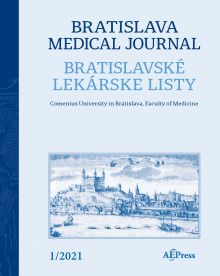Journal info
|
||||
Select Journal
Journals
Bratislava Medical Journal 2024 2023 2022 2021 2020 2019 2018 2017 2016 2015 2014 2013 2012 Ekologia - Ecology Endocrine Regulations General Physiology and Biophysics Neoplasma Acta Virologica Studia Psychologica Cardiology Letters Psychológia a patopsych. dieťaťa Kovove Materialy-Metallic Materials Slovenská hudba 2025Webshop Cart
Your Cart is currently empty.
Info: Your browser does not accept cookies. To put products into your cart and purchase them you need to enable cookies.
Bratislava Medical Journal Vol.125, No.11, p 738–743, 2024 |
||
| Title: Transforming emergency triage: A preliminary, scenario-based cross-sectional study comparing artificial intelligence models and clinical expertise for enhanced accuracy | ||
| Author: Suna ERAYBAR, Evren DAL, Mevlut Okan AYDIN, Maruf BEGENEN | ||
| Abstract: INTRODUCTION: This study examines triage judgments in emergency settings and compares the outcomes of artificial intelligence models for healthcare professionals. It discusses the disparities in precision rates between subjective evaluations by health professionals with objective assessments of AI systems. MATERIAL AND METHOD: For the analysis of the efficacy of emergency triage; 50 virtual patient scenarios had been created. Emergency medicine residents and other healthcare providers who had triage education were tasked with categorizing triage levels for virtual patient scenarios. Also artificial intelligence systems, tasked for resolving the same scenarios. All of them were asked to use three color-coded triage of the Republic of Turkey Ministry of Health. The answer keys were created by consensus of the researchers. In addition, Emergency medicine specialists were asked to evaluate the acuity level of each scenario in order to perform sub-analyses. RESULTS: The study consisted of 86 healthcare professionals, comprising 31 Emergency medicine residents (26.5%), 1 paramedic (0.9%), 5 emergency health technicians (4.3%), and 80 nurses (68.4%). Google Bard AI and OpenAI Chat GPT v.3.5 were used as artificial intelligence systems. The responses compared with the answer key to determine each groups efficacy. As planned the responses from healthcare professionals were analyzed individually for acuity level of scenarios. Emergency medicine residents and other groups of healthcare providers had significantly higher numbers of correct answers compared to Google Bard and Chat GPT (n=30.7 vs n=25.5). There was no significant difference between ChatGPT and Bard for low and high acuity scenarios (p=0.821) CONCLUSION: AI models can examine extensive data sets and make more accurate and quicker triage judgments with sophisticated algorithms. However, in this study, we found that the triage ability of artificial intelligence is not as sufficient as humans. A more efficient triage system can be developed by integrating artificial intelligence with human input, rather than solely relying on technology (Tab. 4, Ref. 41). Text in PDF www.elis.sk |
||
| Keywords: emergency triage, AI applications, health technology, artificial intelligence, emergency management | ||
| Published online: 01-Nov-2024 | ||
| Year: 2024, Volume: 125, Issue: 11 | Page From: 738, Page To: 743 | |
| doi:10.4149/BLL_2024_114 |
||
|
|
 download file download file |
|

